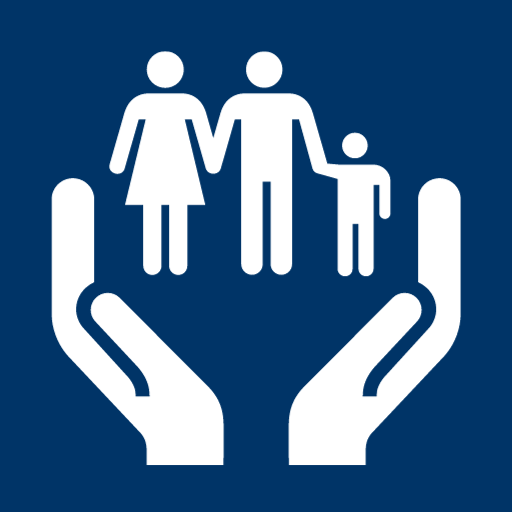Access to affordable healthcare is a fundamental right that significantly impacts the well-being of individuals and families.
Medicaid, a government-sponsored program, plays a crucial role in providing free or low-cost health coverage to those who qualify.
In this comprehensive guide, we will explore the key aspects of Medicaid in Florida, including eligibility criteria, covered services, required documentation, and the application process.
Is Medicaid Right for My Family?
Contents
Medicaid serves as a lifeline for individuals and families who need financial assistance to access essential healthcare services.

It offers coverage for a wide range of medical needs, including doctor visits, hospital care, immunizations, pregnancy-related services, nursing home care, mental health and substance use disorder services, prescription drugs, and preventive wellness services.
The comprehensive coverage is designed to address the diverse healthcare needs of qualifying individuals and families.
Covered Services under Medicaid
Medicaid in Florida encompasses a broad spectrum of healthcare services, ensuring that beneficiaries receive comprehensive care. The covered services include, but are not limited to:
- Outpatient (Ambulatory) Services: Medical services provided outside of a hospital setting, including visits to doctors and clinics.
- Emergency Services: Immediate and essential care for sudden, severe, and life-threatening conditions.
- Hospitalization: Inpatient care for medical conditions that require treatment and observation in a hospital setting.
- Maternity and Newborn Care: Services related to pregnancy, childbirth, and care for newborns.
- Mental Health and Substance Use Disorder Services: Coverage for mental health treatment and services related to substance use disorders.
- Prescription Drugs: Medications prescribed by healthcare providers to address various health conditions.
- Rehabilitative & Habilitative Services: Programs such as physical and occupational therapy aimed at enhancing or restoring functional abilities.
- Laboratory Services: Diagnostic testing and analysis of medical samples to aid in diagnosis and treatment.
- Preventive and Wellness Services & Chronic Disease Management: Services focused on preventing illnesses and managing chronic health conditions.
Who is Eligible for Medicaid?
Medicaid eligibility is determined by a combination of factors, including income, residency, and other specific rules.
To qualify for Medicaid in Florida, individuals (adults and children) and families must meet certain criteria, such as having income below the Medicaid limit.
Importantly, eligibility is not restricted to U.S. citizens or nationals, and non-citizens may qualify for health coverage.
Documentation Requirements
When applying for Medicaid in Florida, it’s essential to provide accurate and up-to-date documentation to support your eligibility. The required documents include:
- Identity of Applicant:
- Birth certificate
- Driver’s license
- Paycheck
- School records
- U.S. Passport
- U.S. American Indian/Alaska Native Tribal document
- U.S. military ID
- Fed, state or local ID
- Social Security numbers
- Award letter
- Medicare card
- Immigration Status:
- Immigration papers/forms/cards (copy of both sides)
- Certificate of naturalization
- Other proof from immigration (USCIS), such as work authorization, letter of decision, or court order on your case, etc.
- Note: All documents and forms will be verified through the Systematic Alien Verification for Entitlement (SAVE)
- Proof You Live in Florida:
- Driver’s license
- Check stub
- Rent or mortgage receipt
- Utility bill
- School, government, or any document showing a Florida address
- Money You Earn:
- Dated check stubs for the last 30 days
- Statement from your employer
- Copy of last year’s tax return
- Bank statement showing direct deposit
- Other Income:
- A current benefit check
- Copies of child support checks
- Alimony checks
- Award letters
- Resources:
- Bank statements showing savings and checking accounts
- Mortgage statements
- Life insurance policies
- Statements of stocks, bonds, or certificates of deposit (CDs)
- Trust documents
- Vehicle registration
- Department of Motor Vehicle registration certificate
- Medical bills
- Additional Proof for Health Coverage:
- Information about any job-related health insurance that is open to your family
- Policy numbers for any current health insurance
Application Process and Timelines
The application process for Medicaid involves submitting the required documentation and waiting for a determination. The State of Florida must decide on a Medicaid application within 45 days for cases that don’t involve a disability.
However, applicants may receive a response sooner. If the application involves a disability, the process may take up to 90 days, depending on the prompt submission of supporting documents and medical records.
To minimize delays, it is crucial to submit all required papers as soon as possible. Additionally, applicants can speed up the process by informing the authorities if there is an urgent medical or dental need, such as a serious illness or pregnancy.
Conclusion
Medicaid plays a vital role in ensuring that individuals and families have access to necessary healthcare services, regardless of their financial situation.
Understanding the eligibility criteria, covered services, and documentation requirements is crucial for a successful application process.
By navigating the Medicaid system in Florida effectively, individuals can secure the health coverage they need to maintain and improve their well-being.

